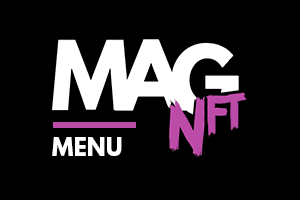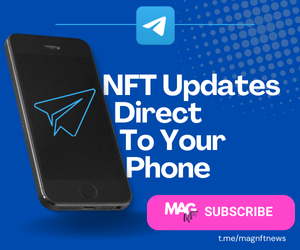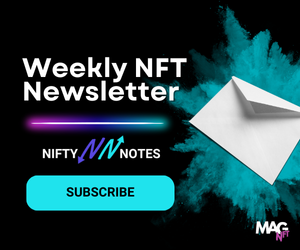- Hitting pause as we await the next phase of Web3 growth.
- Wilder World To Enter ‘Super Early Access’ in Late July 2025
- Treeverse Releases $END Whitepaper, Token Launch Expected Soon
- Draftables to Launch Pre-Season Tournament, Starting June 27
- Evermoon Rebrands as Evermoon Games, Expanding Beyond MOBA
- Uncharted Launches Wallet-Based Rewards
- Wildcard and Thousands Raise $9M to Drive Blockchain Gaming and Web3 Streaming
- On-Chain MMO Block Stranding Completes First Stress Test
Author: Rich
The NFT landscape is full of eye-catching rises and dramatic falls – but no collection has sunk to the depths, only to climb to the top of the mountain quite like this one. That NFT collection is Pudgy Penguins. Today, Pudgy Penguins are regarded as one of the most desirable, coveted and well-known NFT collections in the world. What is Pudgy Penguins, how did they turn their fortunes around, and what could we see from them in future? Here’s our complete 2025 guide to Pudgy Penguins. What is Pudgy Penguins NFT Collection? Pudgy Penguins is a collection of 8,888 NFT…
From $300 million in trading volume on debut, to the ousting of its founder and a takeover by one of the biggest names in Web3, this NFT collection has been through it all – and it could yet still rise again. That NFT collection is Moonbirds. These digital birds prove the mantra that an NFT collection can be down, but never out – but what are they, what should you know about them, and how did they get to where they are today? Here’s our complete 2024 guide to Moonbirds. What is Moonbirds NFT Collection? Moonbirds is a collection of…
The NFT landscape is ruled by three main collections: CryptoPunks, Bored Apes and Pudgy Penguins – but with another collection quickly rising through the ranks, should they be joined by a fourth? That NFT collection is Doodles. These 10,000 NFT characters have gone from a blockchain-based art experiment into one of the leading web3 entertainment brands – but what are they, what should you know about them, and how did they become what they are today? Here’s our complete 2025 guide to Doodles. What is Doodles NFT Collection? Doodles is a collection of 10,000 unique NFT characters. Created by co-founder…
In the space of just 3 years, one character has grown from the minor convention circuit into an NFT-powered entertainment powerhouse – and though prices have fallen, it’s arguably bigger today than ever before. That character is Blue Cat, of the NFT collection is Cool Cats. What started as a simple pen-on-paper idea now encompasses top-tier animations, manga, physical collectibles, real-world experiences and more – but how? Here’s our complete 2025 guide to Cool Cats. What is Cool Cats NFT Collection? Cool Cats is a collection of 9,999 NFT avatars on Ethereum, based on the Blue Cat character. Each avatar…
They may be younger than their contemporaries, but this one collection is shaking up online entertainment in a big way – and speaking to holders, fans and onlookers alike, all are agreed: their potential is gigantic. We are talking about the Azuki NFT collection. From an explosive debut mint, pangs of controversy, and a shake-up of the anime industry, Azuki’s journey has been truly one-of-a-kind – but what is the collection all about, what should you know about them, and why should they be on your radar? Here’s our complete 2025 guide to what the Azuki NFT collection. What is…
Two friends have had a bigger impact on the NFT industry than anyone else – the founders of Larva Labs. Pioneering the NFT space we know today, the work of Matt Hall and John Watkinson has formed the foundations of the digital asset industry, and has been an inspiration for the most popular collections today. From creating the most valuable NFT collection in the world, to innovations that have pushed what’s possible, Larva continues to make a big impact. Their contributions are unmatched – but how did they do it? Here’s our complete 2025 guide to Larva Labs. Who are Larva…
What started as an experiment in digital art is now the most expensive collection of digital assets in the world – with a collective value of over $770,000,000 USD. These NFTs are called CryptoPunks. This collection of 10,000 on-chain pixel avatars have become cultural icons, and a landmark piece of internet history – but what exactly are they, what should you know about them, and why are they so expensive? Here’s our complete 2025 guide to CryptoPunks NFTs. What are CryptoPunks NFTs? CryptoPunks is one of the earliest and most influential NFT projects on Ethereum. Created by Matt Hall and…
Bitcoin has been the leading blockchain-based digital currency since 2009 – but today, NFTs also have their place on the chain. Known as Bitcoin Ordinals, these digital assets have opened new avenues for digital art, collectibles, and blockchain culture. Their debut has turned the world of blockchain-based assets on its head – but what makes Bitcoin Ordinals unique, how do they work, and why should they be on your radar? Let’s take a look in our 2025 guide to Bitcoin Ordinals. What are Bitcoin Ordinals? Bitcoin Ordinals debuted in January 2023, developed by Casey Rodarmor. Ordinals utilise features introduced in…
NFT communities are known for being dedicated, engaged and passionate – but one community stands out from all the rest: DeGods. Since minting on Solana in 2021, thanks to its transparent leadership, culture-focused direction and community-first mantra, it’s quickly become one of the loudest and most widely-known NFT collections amongst blockchain enthusiasts – but how did it get to where it is today? Here’s our complete 2025 guide to DeGods. What is DeGods? DeGods is a collection of 10,000 unique human avatar NFTs, originally minted on Solana in October 2021. Each DeGod holds a distinct mix of traits; from different…
Following the massive success of CryptoKitties, developers Dapper Labs knew that Web3 gaming needed an alternative to Ethereum – so they built Flow blockchain. Flow was the first major competitor to Ethereum for games, apps and experiences, and has powered some of the most mainstream blockchain apps to date. Despite Ethereum Layer-2 blockchains taking off, and competing Layer-1 chains quickly gaining traction, Flow is still at the top of the industry – but what makes Flow stand out, and how is it still at the top? Let’s take a look at our 2025 guide to the Flow blockchain. What is Flow Blockchain? Created…





